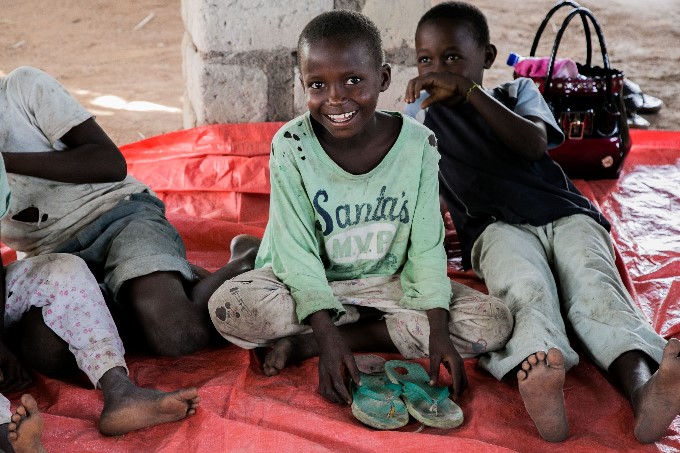When the world forgets the unforgettable

It’s in your smart phones, in your jewellery, in your wedding rings. It’s central to your daily life, whether it’s checking your Instagram, ordering an Uber Eats takeaway, or displaying a life long commitment to your spouse. The Democratic Republic of Congo (DRC) plays a central role in your personal life, and a forgotten role in world affairs.
And yet, like Syria and Yemen—which dominate news headlines—DR Congo is fragile, and rife with brutality and displacement. But without the benefit of an international spotlight, atrocities in DR Congo continue largely unreported. Armed groups and militias are especially rife where diamonds, gold and minerals like coltan are being mined.
Kasai, a vast central region of Congo where I was recently, has been affected by conflict since August 2016. An uprising by the Kamwina Nsapu militia against President Joseph Kabila, began when a local Chief was killed, which led to some fierce retaliation and fighting. There’s worry of an even greater conflict looming should Kabila not proceed with planned elections in 2018, already two years past his final constitutional mandate.
In the meantime, an estimated 3,000 lives have been lost in conflict since September 2016, and over 13 million in urgent need of humanitarian assistance – the largest crisis in Africa. This is but one of the many disparate, yet interconnected conflicts spanning the country.
I was on the ground with Save the Children’s humanitarian team, urgently working to run mobile health clinics, get children back in school, and help families get food.
While we continue to do whatever we can to assist, it is a downright scandal that the UN’s 2017 appeal was only 50% funded, and the 2018 appeal for $1.68 billion USD is a paltry 12% funded. Thousands of lives hang in the balance, forgotten.
So what does a forgotten crisis look like? Lush greenery, but a growing hunger crisis. Farmers on the run, leaving their fields behind. A burgeoning mining industry, yet record numbers remain in absolute poverty. The highest number of preventable child deaths in the world. Violent attacks on schools and medical facilities by armed groups. And most of all, we're seeing the deep psychological scars of war among children.
I recently spoke with Kabada*, a former child soldier, struggling to cope with his experiences. He was coerced into joining an armed group for food and money, and underwent a so-called baptism where he was tattooed, and told children couldn't be harmed by bullets. He was drugged, and sent to the front lines with only sticks, meant to fight a hopeless fight. And yet, despite the violence and destruction he's witnessed, he is recovering, hopeful, and determined to work with the community to ensure no child goes through this horrific experience again.
When students around the world are protesting against attacks on education, children in DR Congo are being forcibly recruited by malicious armed groups while walking to class, returning later only to torch, loot, and terrorize schools and other students. This is an absurdity that doesn’t find its way into Western media. Attacks on schools, no matter where they occur, are crimes against all education.
DR Congo may not be the geo-political quagmire for Western powers that is Syria or Iraq. But it deserves your attention. Because when there are children like Kabada who’ve experienced the worst of humanity, and still find ways to improve themselves and their communities, there’s no reason why we can’t push our leaders to prioritize and fund children’s needs. When students come first, we all win.
Kyle DeGraw is a Humanitarian Communications Manager with Save the Children.
 DR Congo
DR Congo